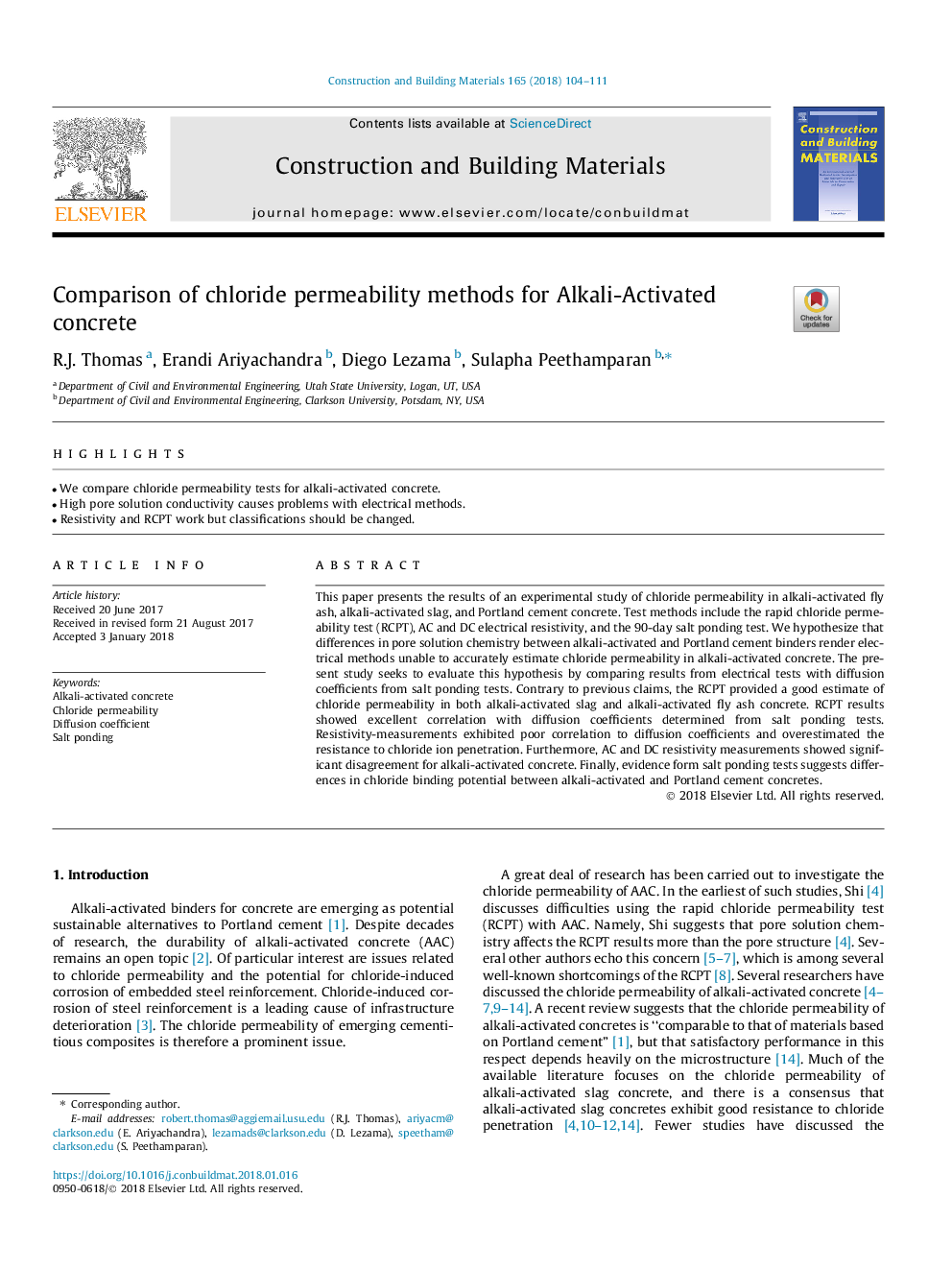| Article ID | Journal | Published Year | Pages | File Type |
|---|---|---|---|---|
| 6715530 | Construction and Building Materials | 2018 | 8 Pages |
Abstract
This paper presents the results of an experimental study of chloride permeability in alkali-activated fly ash, alkali-activated slag, and Portland cement concrete. Test methods include the rapid chloride permeability test (RCPT), AC and DC electrical resistivity, and the 90-day salt ponding test. We hypothesize that differences in pore solution chemistry between alkali-activated and Portland cement binders render electrical methods unable to accurately estimate chloride permeability in alkali-activated concrete. The present study seeks to evaluate this hypothesis by comparing results from electrical tests with diffusion coefficients from salt ponding tests. Contrary to previous claims, the RCPT provided a good estimate of chloride permeability in both alkali-activated slag and alkali-activated fly ash concrete. RCPT results showed excellent correlation with diffusion coefficients determined from salt ponding tests. Resistivity-measurements exhibited poor correlation to diffusion coefficients and overestimated the resistance to chloride ion penetration. Furthermore, AC and DC resistivity measurements showed significant disagreement for alkali-activated concrete. Finally, evidence form salt ponding tests suggests differences in chloride binding potential between alkali-activated and Portland cement concretes.
Related Topics
Physical Sciences and Engineering
Engineering
Civil and Structural Engineering
Authors
R.J. Thomas, Erandi Ariyachandra, Diego Lezama, Sulapha Peethamparan,
